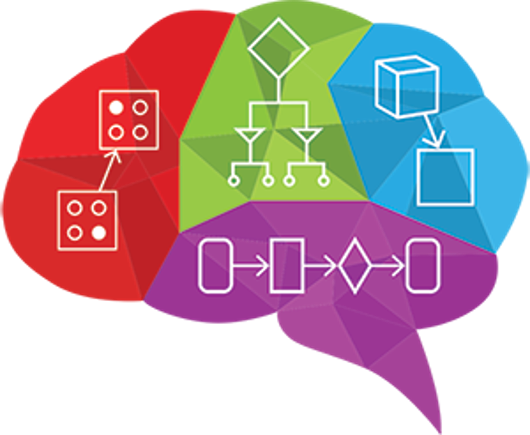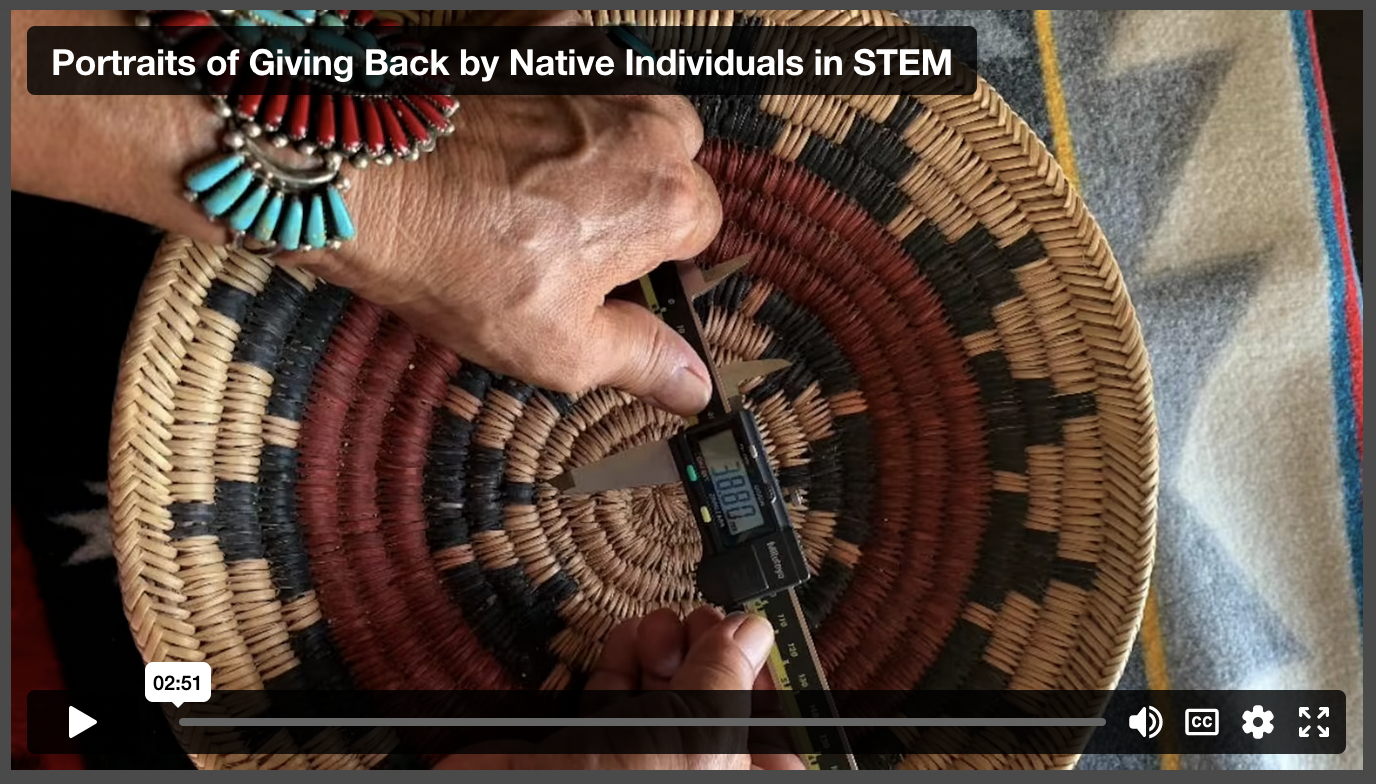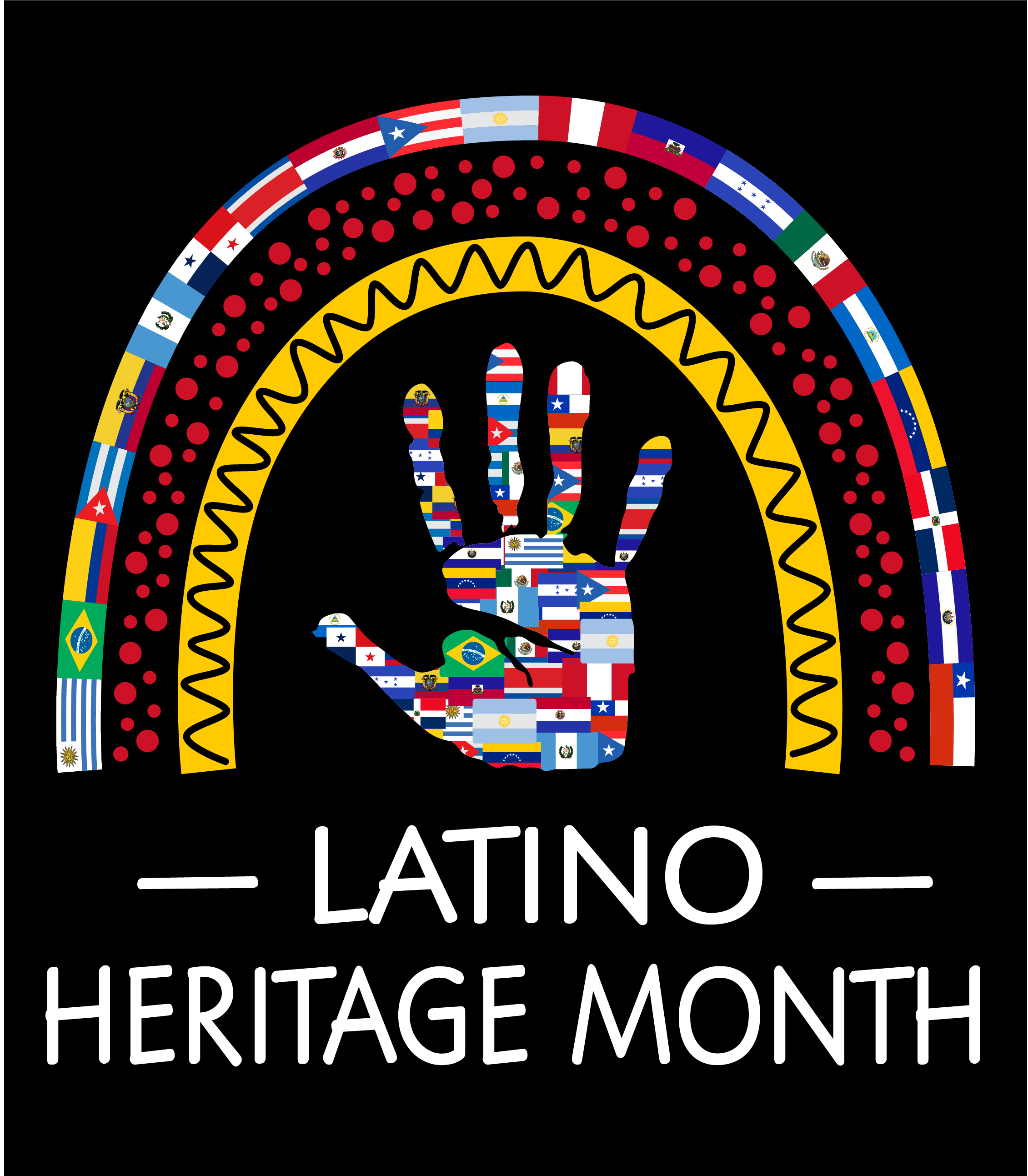TERC Blog
Bringing Math Talk Home
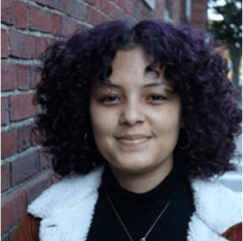 Anya Carbonell is a Junior at Boston University majoring in international studies. As a TERC Scholar in the 2019-2020 school year, she worked on TERC’s Aprendiendo project, coordinating with Spanish-speaking families in the Boston area to expand and support mathematics education for Pre-K students.
Anya Carbonell is a Junior at Boston University majoring in international studies. As a TERC Scholar in the 2019-2020 school year, she worked on TERC’s Aprendiendo project, coordinating with Spanish-speaking families in the Boston area to expand and support mathematics education for Pre-K students.
During my sophomore year at Boston University, I supported the project Aprendiendo de familias: Learning Math Talk with Pre-K Spanish Speaking Families, funded by the STEM Education Evaluation Center at TERC. The Aprendiendo project addresses the digital divide between parents and their young children by creating short, engaging videos modeling mathematic activities and sending them to families through a free mobile app. The project’s goal is to engage Spanish-speaking parents and their young children in Math Talk through short videos and interactive mobile messages. This eye-opening experience showed me just how important it is to have parents involved in their children’s learning, especially in math.
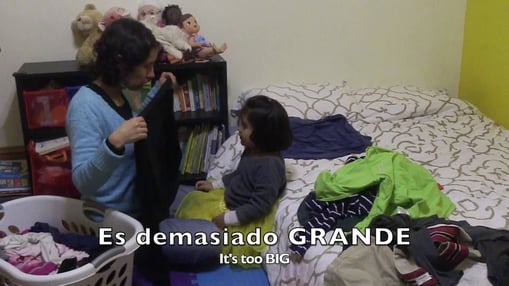
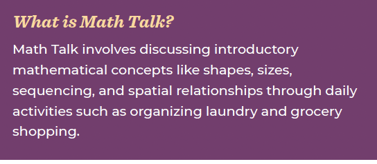
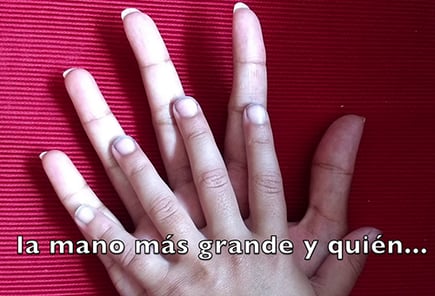
Pre-COVID, I spent time with project leaders Sabrina De Los Santos and Audrey Martínez-Gudapakkam preparing for the pilot of the project. We focused on reaching Spanish-speaking families with young children under the age of five, who didn’t speak English and had limited literacy in their own language. Initially I considered the challenges of how this type of family — one closely resembling my own — would be able to participate in a research study like this one. My parents are essential workers as well as working class, leaving them little time to do any activities outside of their jobs. Both of my parents are mainly Spanish speakers, although my mother knows how to speak English. It was very difficult for me to imagine how parents who work long hours most of the week, like mine, would be able to participate in a project that required extra work outside of an already stressful and time-consuming workday. Nevertheless, I worked with the expectation that parents would regularly engage in math activities with their children, show up to interviews, and actively participate in the project.
Unforeseen Challenges
The pandemic made piloting our intervention strategies very challenging since our original plans involved meeting parents in person to help them overcome technology barriers. The families we targeted were struggling with financial burdens as well as mental and emotional wellbeing. In order to provide adequate support, we had to be much more involved in helping them find resources to weather the difficulties the pandemic created. With the added layer of language and literacy barriers, we searched for viable technology options for families to use, and we ultimately relied primarily on WhatsApp™ for communications because it was a platform they were already using. In addition, we made ourselves available to meet with parents outside the traditional nine-to-five working hours.
Looking back, I realize that even without the pandemic, scheduling would have been a challenge because families would still have the same jobs that required them to work long hours. This worldwide crisis exacerbated these since it created even more hardships for socioeconomically disadvantaged families. For example, one of the parents in our pilot group worked odd shifts at a hospital as an essential worker and is the primary caretaker for her children as well as her niece, so she wasn’t always available to work with us. Although we tried to schedule meetings far in advance, sometimes she needed to cancel at the last minute because a work or family issue came up. Despite the obstacles she faced, she tried her best to remain engaged in our project. Taking into consideration how overwhelming it could be to juggle so many things at once, we learned to modify our approach and be more accommodating. Our revised strategy included using different communication methods such as voice messages instead of text and limiting how frequently we contacted her.
Working at a Distance Provides Insights
During the pilot, stay-at-home orders forced me to go back home from BU. I spent the remainder of my spring semester with my family in New York, but this served as an advantage in disguise. My own parents became incredibly helpful in testing the forms we sent out to the parents participating in our project. I reviewed the consent form and interview questions with my parents, having them pinpoint where the wording might get confusing and burdensome for parents, and using their feedback to rephrase the forms in ways that were easier for Spanish-speakers from different cultures to read and understand.
“I’ve definitely grown by asking [the questions in the activities] to make sure the kids are getting the concepts. The questions showed me that ‘good’ math questions can be about thinking, rather than about finding the answer.”
—ELR FACILITATOR ON CHANGES IN HER OWN LEARNING
I also realized how far-removed educational research can be from the realities of the everyday life of working-class families. When conducting a study, participants are expected to show up on time, adhere to the rules and regulations the researchers create, and conform to the ideas of what a researcher deems a proper fit to the research study. Research with strict timetables and deadlines sometimes do not fully consider those who cannot afford to work by that same schedule. Because of these limitations, people who could benefit the most from projects like ours might not be able to receive the support they need to participate in research. Working on this project during the pandemic was stressful, but also taught me many lessons about meeting research participants where they are.
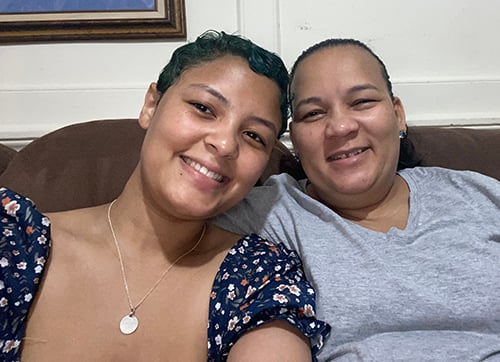 Anya with her mom (right), Monica Mejia Rodriguez.
Anya with her mom (right), Monica Mejia Rodriguez.
Despite being an international studies major, my time at TERC has helped me realize my interest in education-related research. I first heard about TERC and the TERC Scholars Program (TSP) through the College Access and Student Success Office at BU. Being a first generation and low-income college student, I was encouraged to apply while still being undeclared in my major, and the program has greatly influenced how I look at the world and approach real world problems. TSP was the first time I was exposed to any kind of research work, and because of the mentorship I received, I began to seriously consider a career in STEM research despite not majoring in anything STEM related. For a research project to work well and address the concerns of diverse groups, people from different backgrounds and skill sets are needed beyond having an academic background in STEM. However, the interdisciplinary angle of research is rarely discussed with students when they are asked about their future career interests. I hope that with more encouragement, more students with different educational backgrounds can participate in research projects to make them more meaningful and effective.
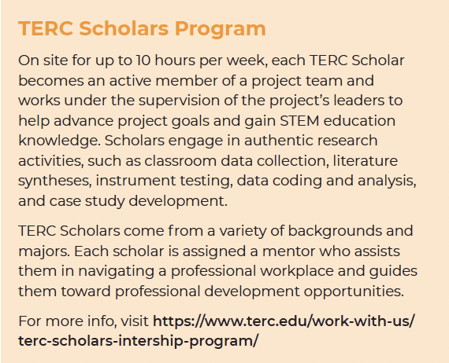
Acknowledgements
Audrey Martinez-Gudapakkam, Judy Storeygard, and Sabrina De Los Santos have all taught me so much during this project and have all helped me in every step of writing this article, offering invaluable knowledge and support. Thanks to my mother for the additional insight on this project. This article is based on the pilot process of the Aprendiendo project, internally funded by TERC. Thanks to Stephen Alkins, TSP director, for his continuous encouragement and support throughout my time at TERC.
To learn more about this project go to: https://www.terc.edu/projects/aprendiendo/

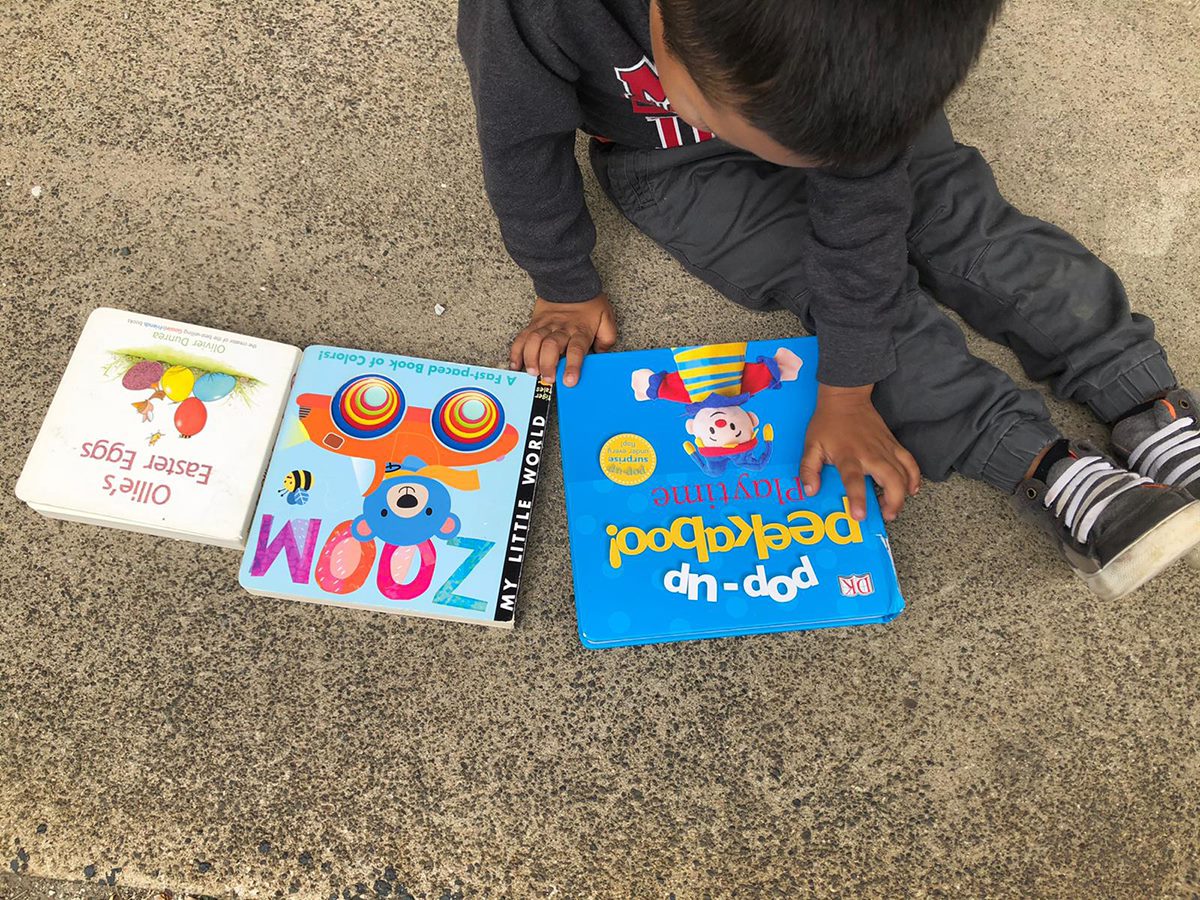




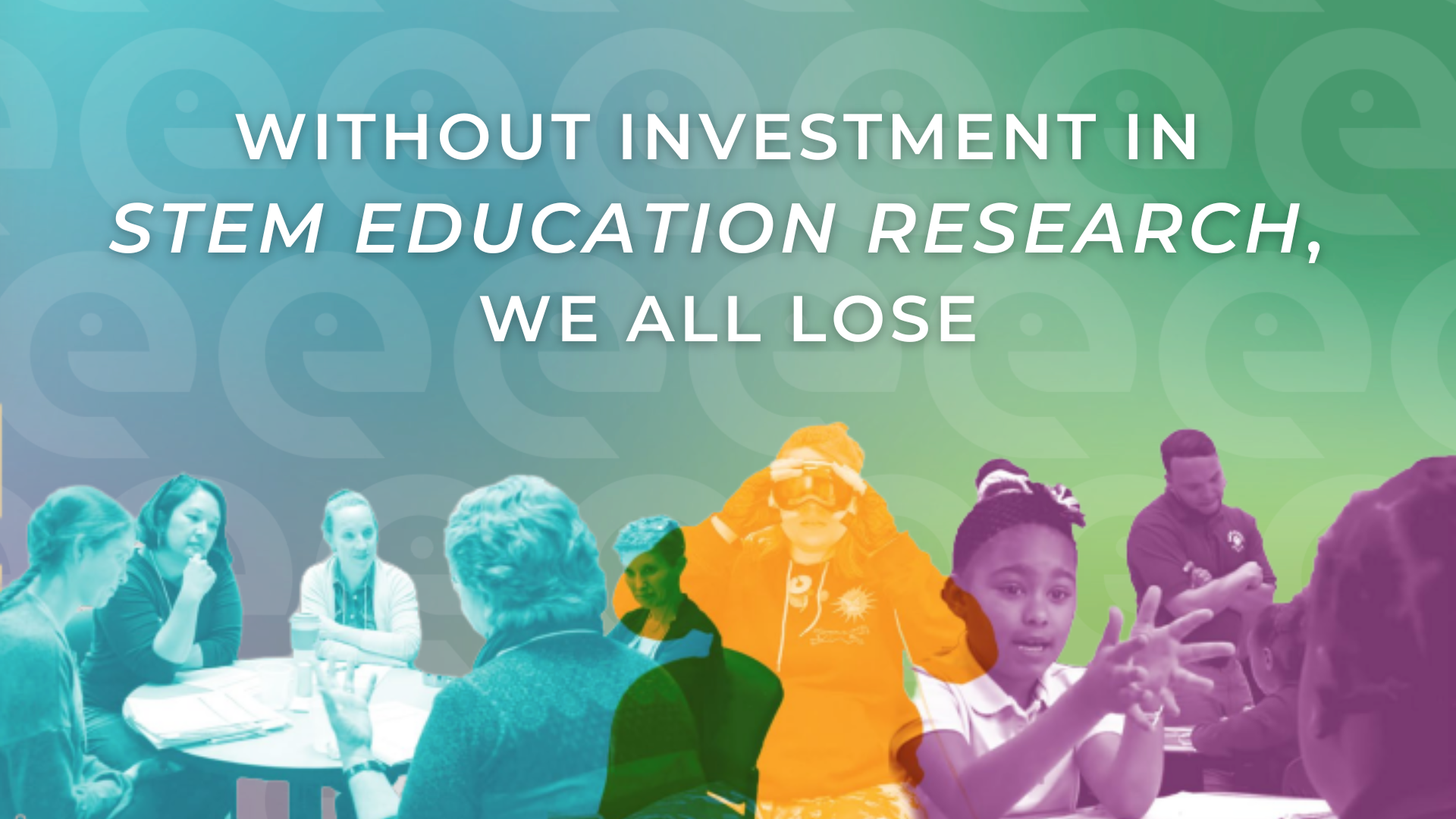
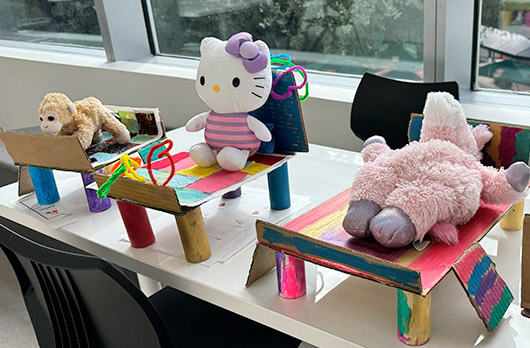
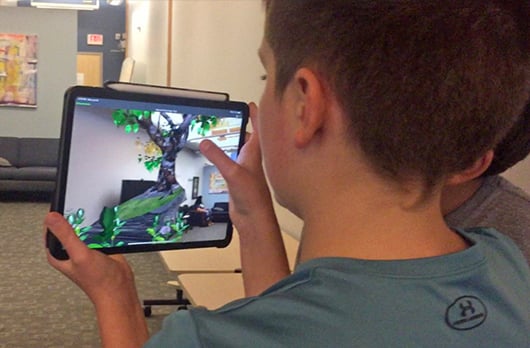
.gif)
